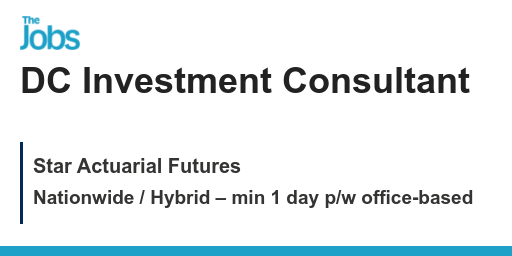
Consulting services are a great way to earn extra money, but pricing them is not always straightforward. It is essential to learn how to price consulting services accurately so that you can win new customers and keep your business afloat.
There are many different consulting services pricing models that you can use to price your business and make sure your rates are right for the job at hand and your target market. The most common pricing models are hourly, flat and retainer.
Hourly Rates
Hourly rates are the most commonly used pricing model for consulting services. These rates are based on the time it takes to complete one project. This model works well for smaller projects but can be difficult to adjust for larger projects.
Hourly rates are a good option for consultants who are just starting out. This allows you to determine the value of a project and allows you to adjust your fees as you learn about the work involved.

But you must be careful not to charge too much for your services. You could lose your profit or be subject to legal action if you charge too much for a project.
Consultancy Services Pricing Strategies
If your consulting services have exceptional characteristics, you may choose to charge for them per-service. This is a common way to charge small businesses for specialized services and agencies offering multiple services.
It is a good idea price each service separately if you are using a per-service pricing system. This will ensure that your clients get the most value for their money. They can also easily switch between services.
Coaching and Retainer fees
A retainer fee is a monthly payment that is negotiated between a consulting firm and a client. Coaches and trusted advisors who provide long-term support for their clients often use it.
You can help your clients budget and have consistent cash flow through the year by using retainers. This is particularly important if you are working with small businesses owners who don’t have the capital to spend upfront on your services but may need it in the long-term.

Retainer fees can be a great way to get first notice of new projects. This can be especially beneficial for fast-growing start ups or situations where you need help right away.
Remember that consulting rates are not about how much you charge, but also the value your clients receive. If you offer data science-based services and can save your clients money, then you will be able to charge a higher consulting fee than if only you were giving general management advice.
FAQ
Who hires consultants
Many organizations hire consultants to assist with projects. These consultants can be found in small and large businesses as well as government agencies, universities, educational institutions, non-profits, and education institutions.
Some consultants work directly for these organizations, while others freelance. The hiring process will vary depending on the complexity and size of the project.
Before you can hire a consultant, there will be several rounds of interviews.
What qualifications do you require to become a Consultant?
Not only is it important to have an MBA but you should also have business consulting experience. A minimum of two years' experience in consulting, training and/or advising a major company is necessary.
It is essential that you have experience working closely with senior management on strategic development projects. This would require you to be comfortable with presenting ideas and getting buy in from clients.
Additionally, you will need to pass a professional qualification such as the Chartered Management Institute Certified Management Consultant (CMC).
What are the types of contracts available to consultants?
Most consultants sign standard employment agreements when hired. These agreements include details such as how long the consultant will stay with the client, what he/she can be paid, and other important information.
Contracts also specify which areas of expertise the consultant will focus on and how the consultant will be compensated. An agreement could state, for example, that the consultant will offer training sessions, workshops and webinars.
Sometimes, the consultant agrees to do certain tasks within a given time frame.
Consultants often sign independent contractor contracts in addition to their standard employment agreements. These agreements allow the consultant freedom to work without being paid.
How can I be a successful consultant?
First, find a subject you're passionate about. First, build relationships. Knowing what your clients want and how they work is key. Finally, you have to deliver results for your clients.
Although you don't have the ability to do everything perfectly, you must be better than anyone else. You need passion for what your do. It's not enough to just say "I want to be a consultant." You must really believe in yourself and what you're doing.
What is the difference between a consultant and an advisor?
A consultant provides advice on a topic. A consultant can offer solutions.
A consultant works directly with clients to help them achieve their goals. The advisor provides indirect advice through books, magazines lectures, seminars, and the like.
What happens after the consultant completes the job?
After the consultant completes his/her work, the final report will be submitted detailing the findings of their work. This report includes project timelines, deliverables, and any other pertinent information.
The report will be reviewed and you can decide if the consultant met all your expectations. If it does not, you can ask for changes or terminate the contract.
Statistics
- Over 62% of consultants were dissatisfied with their former jobs before starting their consulting business. (consultingsuccess.com)
- So, if you help your clients increase their sales by 33%, then use a word like “revolution” instead of “increase.” (consultingsuccess.com)
- 67% of consultants start their consulting businesses after quitting their jobs, while 33% start while they're still at their jobs. (consultingsuccess.com)
- My 10 years of experience and 6-step program have helped over 20 clients boost their sales by an average of 33% in 6 months. (consultingsuccess.com)
- "From there, I told them my rates were going up 25%, this is the new hourly rate, and every single one of them said 'done, fine.' (nerdwallet.com)
External Links
How To
What is a typical day for a consultant?
Depending on what type of work you do, your typical day may vary. You'll spend your time researching new ideas and meeting clients.
Meetings are a common way to discuss problems and issues with clients. These meetings may be over the phone via email, on-line, or face-to–face.
It is possible that you will be asked to write proposals. These documents outline your ideas and plans, and are required by clients. These proposals should be discussed with a mentor or colleague before being presented to clients.
After all the planning and preparation you will have to put your efforts into creating some content. You might be creating articles, videos, editing photos, writing interviews, or designing websites.
Depending on your project's scope, it may be necessary to do research to get relevant statistics. You might need to determine how many customers you have, and whether they buy more than one product.
Once you have all the information needed, it is time for clients to see your findings. Your findings can be presented orally or written.
Finally, you must follow up with clients after the initial consultation. For example, you could call your clients periodically to check how things are going. Or send them emails asking them to confirm they have received the proposal.
Although this process can take time, it is important to stay focused and build good relationships with your clients.